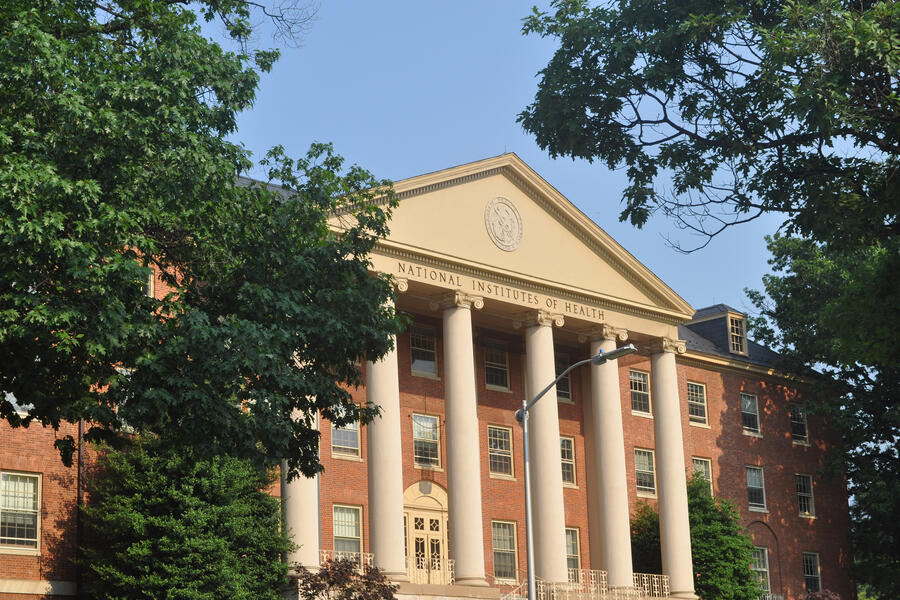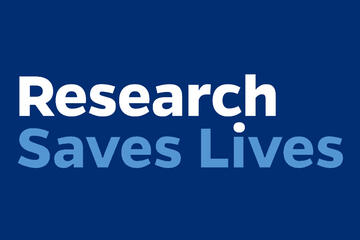- Name
- Johns Hopkins Media Relations
- jhunews@jhu.edu
- Office phone
- 443-997-9009
Johns Hopkins University joined 12 peer research universities along with the American Association of Universities, the American Council on Education, and the Association of Public and Land-Grant Universities in filing a lawsuit in federal court Monday seeking to block abrupt and significant cuts to research funding from the National Institutes of Health announced Friday evening.
In response to similar but separate lawsuits filed Monday—one by the attorneys general of 22 states, including Maryland, and another by the Association of American Medical Colleges and co-complainants—a federal judge in Massachusetts temporarily blocked the major policy change that would have taken effect Monday, days after it was first announced.
The proposed cuts to NIH research funding—which specifically target expenses known as "indirect costs"—directly and immediately put critical and ongoing research across the country in jeopardy, JHU President Ron Daniels and Hopkins Medicine CEO Theodore L. DeWeese wrote in a message to the Hopkins community on Monday night.
To illustrate this point, Daniels and DeWeese noted that among other ongoing research, NIH funding currently supports approximately 600 ongoing clinical trials at Johns Hopkins, including trials in cancer, pediatrics and children's health, heart and vascular studies, and the aging brain, among many others.
and Hopkins Medicine CEO Theodore L. DeWeese
"The NIH funding cut endangers these trials and many more like them into the future," they wrote. "And these trial participants are our patients. The care, treatments, and medical breakthroughs provided to them and their families are not 'overhead'—they offer meaningful hope and scientific expertise, often when it's needed most. They are the lifeblood of the advanced care that draws patients from across the country and around the world to Johns Hopkins. Many of them come to us with life threatening conditions or diseases that have failed to respond to treatment elsewhere. They come to us because of our commitment to connecting our research with the very best clinical care.
"These abrupt and sweeping cuts in NIH funding pose an extraordinary challenge to the important and lifesaving work of our faculty, staff, and students at Johns Hopkins," they added. "They jeopardize the longstanding and remarkable research partnership that was forged between the federal government and higher education at the conclusion of WWII, and put at risk the future of the American research enterprise as a whole."
In an announcement late Friday, the NIH—the primary source of federal funding for medical research in the United States—said that it would cap at 15% the rate at which it would reimburse research universities and other funding recipients for expenses categorized as "indirect costs"—funds that support a broad range of facility and administrative costs essential to the support of research and basic operations. In fiscal year 2023, indirect costs across all grants accounted for just over 25% of all funding provided by NIH. The proposed cap would cut more than $4 billion from the budgets of the nation's medical research institutions, according to the NIH.
Through its awards to Johns Hopkins University and thousands of other universities, medical schools, and research institutions across the nation, NIH supports vital and cutting-edge medical research, which millions of Americans benefit from and depend on. At JHU, NIH-funded research focuses on understanding, treating, and curing a broad array of human ailments and life-threatening diseases and conditions, including cancer, cardiovascular disease, malaria, Lyme disease, influenza, Alzheimer's, and many more.
Johns Hopkins University receives more NIH support than any other entity in the U.S. In fiscal year 2024, the university received a total of approximately $1,022,300,000 in research funding from NIH, in connection with more than 3,200 active awards, including approximately $281,446,000—27.5% of the total—as reimbursement for what is described as indirect costs. In other words, in FY24, 72.5 cents of every dollar JHU received from the NIH was spent in direct pursuit of innovative research proposals selected through a highly competitive peer-driven process, and 27.5 cents of every dollar went to cover an agreed-upon portion of related costs, including the facilities, equipment, and research support necessary to conduct that research.
An abrupt change in support for these essential costs, as was announced by NIH late Friday, would end, seriously jeopardize, or require significant scaling back of hundreds of research projects across the university, including work of critical importance to lifesaving medical discoveries, treatments, care, and cures in areas including cancer, cardiovascular disease, diabetes, the effects of aging, traumatic brain injury, mental health, and substance abuse, among many others. The university has created a web page to share updates and guidance with researchers as the policy landscape continues to evolve.
Johns Hopkins Bloomberg Distinguished Professor Jack Iwashyna, a critical care physician and health services researcher, has an NIH grant that enables him to study how people can recover faster from pneumonia, one of the most common reasons why people are admitted to hospitals. The proposed cuts would, among many things, mean Iwashyna couldn't pay for the advanced computer system that allows his team to identify millions of data points about patients across the United States that they are studying. They also couldn't pay for the programmers or the staffers who keep that data accurate and secure.
"If we can't keep the computers plugged in, we can't do that work. We can't do it with pen and paper and elbow grease," he said. "If we lose the funding, it all stops. We're developing interventions to help people get back to work faster, to reduce insurance costs, and to make the country more productive. If we don't do that work, it means more people being sicker longer."
Bloomberg Distinguished Professor Otis Brawley studies cancer disparities across Maryland and is in the middle of a project examining starkly high smoking rates among young people in different parts of the state, which he anticipates will lead to what he calls a "huge" problem in smoking-related cancers for some counties in the next 20 to 30 years.
The indirect NIH grant funding keeps his lab running and supports the data stream that underpins the work.
"To figure out why there are disparities in disease across populations, we need data from genetic analysis and imaging and electronic modeling in order to try to figure out what the disparities are, why they exist, and how to overcome them," he said.
In their message, Daniels and DeWeese wrote that university leaders, in partnership with academic peers and research practitioners across the nation, will continue to make the case for the vital importance of the academic research enterprise and the federal funding that makes it possible.
"Your work is at the heart of the compact between America's research universities and our government, in service to our fellow citizens and the nation," they wrote. "We will continue to advocate for and support your exceptional work, and to preserve the excellence and mission of our university."
Posted in University News
Tagged research funding









